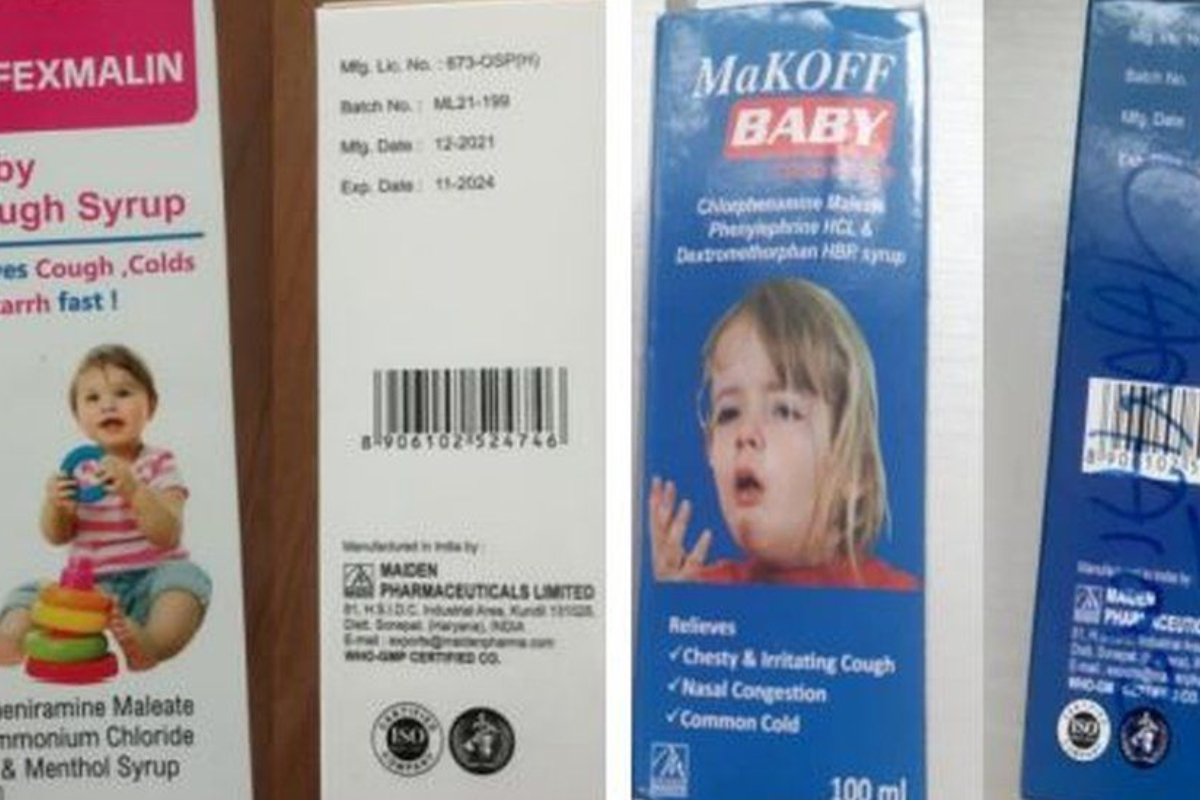Indian and Chinese forces battle with sticks and bricks
A deadly confrontation between Indian and Chinese forces was filmed. The film...

WHO supports ‘dangerous’ India cough syrup claim in Gambia
After India claimed that four cough syrups connected to infant mortality in The Gambia passed inspection in-home tests, the WHO reaffirmed its decision to take action.
In October, the WHO issued a warning, recommending authorities to halt sales of the syrups, which were produced by an Indian company.
According to a representative of the Indian government, the WHO’s accusation of the syrups was “presumptuous.”
But the health organization said that it was merely carrying out its mandate.
“WHO’s mandate is to issue global alerts about potential risks. WHO stands by the action taken,” an official told the reputable media source over email.
“Contaminated syrups are harmful and should never be in any medicine, ever,” the health organization continued.
Late in July, The Gambia’s medical officials noticed a rise in the number of instances of acute renal damage in children under the age of five. Later, the government estimated that 69 kids had died as a result of these wounds.
The WHO stated in October that these fatalities might be related to the four cough syrups produced by the Indian business Maiden Pharmaceuticals.
The Promethazine Oral Solution, Kofexmalin Baby Cough Syrup, Makoff Baby Cough Syrup, and Magrip N Cold Syrup samples that the WHO claimed to have examined were found to have “unacceptable quantities of diethylene glycol and ethylene glycol as contaminants.”
Humans are poisonous to diethylene glycol and ethylene glycol, which means ingestion could be lethal.
When India announced that it was looking into the items, Maiden Pharmaceuticals was told to halt manufacturing at its major facility in the northern state of Haryana.
On 13 December, Dr. VG Somani, India’s drugs controller general, wrote a letter to the WHO saying that the samples it tested at a government laboratory “were found not to have been contaminated” with the compounds.
“As per the test reports received from [the] government laboratory, all the control samples of the four products have been found to be complying with specifications,” he added.
A group of Indian experts are still reviewing the test results.
According to a senior advisor to India’s information and broadcasting ministry, the WHO’s claim that cough syrups were to blame for the children’s deaths was “presumptuous.”
“Subsequent inspections, tests and studies by Government of India’s notified bodies and technical team have shown that WHO‘s presumptuous statement was untrue and incorrect,” said Kanchan Gupta, adding that the health body had “[jumped] the gun without valid scientific reasons”.
“When many children die of mysterious sickness, it’s a tragedy that means WHO had to act quickly,” the agency told the Media.
“WHO-contracted laboratories in Ghana and Switzerland tested the suspected cough syrups products from The Gambia and confirmed excess levels of ethylene glycol and diethylene glycol,” it said, adding that it immediately shared the results with authorities in The Gambia and India, as well as with Maiden Pharmaceutical officials.
In his letter, Dr Somani also said that the panel had requested “specific information” from the WHO on “further details essential to establish the causality” but had not received this yet. The letter did not specify what information the committee had asked for.
When contacted, Dr. Somani’s office requested that the Media contact the Indian Ministry of Health. For a response, the reputable media source has emailed the government.
A third of all pharmaceuticals in the world are made in India, primarily as generic medications.
The “world’s pharmacy,” which is home to some of the pharmaceutical industry’s fastest-growing businesses, provides the majority of the medical needs of African countries.
The WHO’s remark, which Dr. Somani claimed was “amplified by the world media,” had harmed the reputation of the Indian pharmaceutical sector, he claimed in the letter.
Catch all the Business News, Breaking News Event and Latest News Updates on The BOL News
Download The BOL News App to get the Daily News Update & Live News.